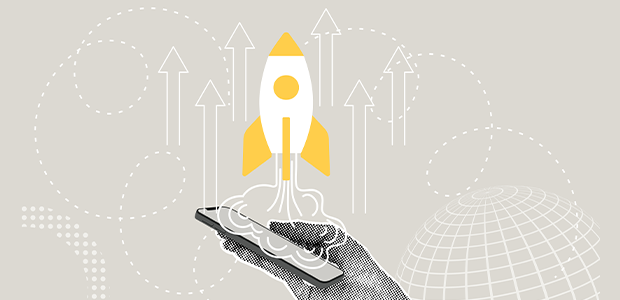
Migrant startups in Berlin: a win-win strategy for Europe’s economy and innovation
On 30 January, the final of the Polish startup accelerator Axios took place in Berlin. Twenty-one entrepreneurial teams presented their projects to the jury – ranging from AI platforms for pet care to apps for people with insulin resistance. Participants tested their ideas, received valuable market expert recommendations, and explored new growth opportunities. The programme was supported by key IT industry players, including SOFTSWISS international tech company.
The accelerator’s goal is to support early-stage startups across three key areas: product, marketing, and finance. Axios helps entrepreneurs validate their ideas and start developing in-demand products. A total of 52 applications were submitted for the first cohort, and applications were closed early due to high demand.
The winner of the competition was Meealthy, an AI assistant that provides personalised nutrition and healthy lifestyle recommendations for women. Second place went to HabbyApp, an interactive application that helps children develop healthy habits through gamification. H&H Travel, an intelligent travel planning assistant, rounded out the top three.
The Axios accelerator programme was designed by Sergey Krasakovich, Programme Director at Axios and marketing expert, and Galina Drozd, CEO at Axios and finance specialist. The first cohort combined online learning with two in-person events in Warsaw and Łódź, where participants received feedback from mentors and built professional connections.
"One of our greatest achievements is that a third of the startups reconsidered their ideas after thorough testing and mentors’ feedback. This is a key indicator of the accelerator's effectiveness for us," says Sergey Krasakovich. "We believe that individual mentorship has strengthened teams' offerings and better equipped them for market entry."
The startups that made it to the finals of the first cohort featured AI platforms for pet care and personalised travel recommendations, applications for people with insulin resistance, for children's healthy habits, and for choosing clothes according to the weather.
Most of the first-cohort projects were founded by migrants. The accelerator helped them refine their products and take a step closer to contributing to the economy and society of their host countries. Projects like this highlight how diverse experiences and expertise become valuable assets for Europe's innovation ecosystem.
The final-round jury included renowned experts in investment, technology, and management. Among them was Ivan Montik, Founder of SOFTSWISS, an international IT company that also operates outsourcing development centres in Poznań and Warsaw.
"I enthusiastically accepted the invitation to join the Axios accelerator final jury because I consider such initiatives crucial for entrepreneurship and economic development. At the early stage, where many of these teams are, it is critical to set the right priorities – focusing on product development, idea testing, and building marketing and financial strategies," says Ivan Montik. "As an entrepreneur and investor, I understand the importance of support at this stage. Programmes like Axios not only help startup founders structure their ideas but also lay the groundwork for securing early investments. We can see how the accelerator helps teams transform their ideas into real projects with a potential to scale."
According to the Global Entrepreneurship Monitor, the early-stage entrepreneurial activity (TEA) rate in Europe is generally lower than in other global regions, particularly North and South America.
Among European countries, the Baltics, the UK, Ireland, the Netherlands, Croatia, Portugal, and Turkey have relatively high TEA levels. Meanwhile, Germany and Poland ranked 14th and 20th, respectively (Statista, 2024).
One possible reason for the lower entrepreneurial activity in Europe is the well-developed social protection system and favourable employment conditions, making traditional jobs more attractive than entrepreneurship.
However, integrating migrants into the startup ecosystem could be a win-win strategy for European economies. Rather than competing for existing jobs, migrants can create new employment opportunities, fostering economic growth and driving innovation.
For more startup news, check out the other articles on the website, and subscribe to the magazine for free. Listen to The Cereal Entrepreneur podcast for more interviews with entrepreneurs and big-hitters in the startup ecosystem.

